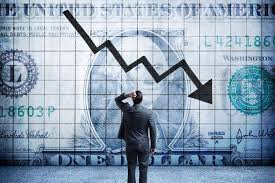Business

Business — October 27, 2025
Global markets fluctuated as investors analyzed new U.S. inflation data and comments from the Federal Reserve, shaping expectations for future interest rates.

Business — October 27, 2025
China’s manufacturing sector shows strong growth, boosting global trade confidence and signaling potential recovery in international markets.

Business — October 27, 2025
OPEC+ decides to maintain current production levels, leading to a decline in global oil prices amid market adjustments.

Business — October 27, 2025
The EU passes a groundbreaking AI and data privacy law, reshaping compliance rules for Big Tech companies across Europe.

Business — December 16, 2025
Even as the broader economy faces challenges, U.S. corporate earnings have grown, reflecting resilience in sectors like technology, finance, and energy, though risks remain for the year ahead.

